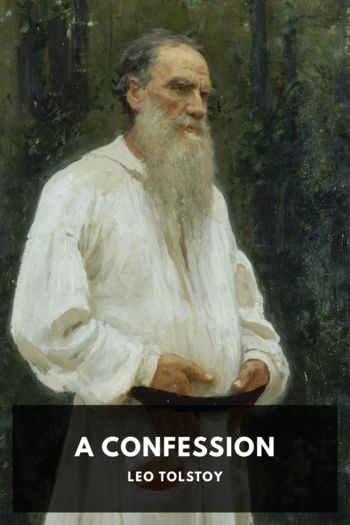Anna Karenina by Leo Tolstoy (feel good books TXT) 📕

- Author: Leo Tolstoy
Book online «Anna Karenina by Leo Tolstoy (feel good books TXT) 📕». Author Leo Tolstoy
An attempt at divorce could lead to nothing but a public scandal, which would be a perfect godsend to his enemies for calumny and attacks on his high position in society. His chief object, to define the position with the least amount of disturbance possible, would not be attained by divorce either. Moreover, in the event of divorce, or even of an attempt to obtain a divorce, it was obvious that the wife broke off all relations with the husband and threw in her lot with the lover. And in spite of the complete, as he supposed, contempt and indifference he now felt for his wife, at the bottom of his heart Alexey Alexandrovitch still had one feeling left in regard to her—a disinclination to see her free to throw in her lot with Vronsky, so that her crime would be to her advantage. The mere notion of this so exasperated Alexey Alexandrovitch, that directly it rose to his mind he groaned with inward agony, and got up and changed his place in the carriage, and for a long while after, he sat with scowling brows, wrapping his numbed and bony legs in the fleecy rug.
“Apart from formal divorce, One might still do like Karibanov, Paskudin, and that good fellow Dram—that is, separate from one’s wife,” he went on thinking, when he had regained his composure. But this step too presented the same drawback of public scandal as a divorce, and what was more, a separation, quite as much as a regular divorce, flung his wife into the arms of Vronsky. “No, it’s out of the question, out of the question!” he said again, twisting his rug about him again. “I cannot be unhappy, but neither she nor he ought to be happy.”
The feeling of jealousy, which had tortured him during the period of uncertainty, had passed away at the instant when the tooth had been with agony extracted by his wife’s words. But that feeling had been replaced by another, the desire, not merely that she should not be triumphant, but that she should get due punishment for her crime. He did not acknowledge this feeling, but at the bottom of his heart he longed for her to suffer for having destroyed his peace of mind—his honor. And going once again over the conditions inseparable from a duel, a divorce, a separation, and once again rejecting them, Alexey Alexandrovitch felt convinced that there was only one solution—to keep her with him, concealing what had happened from the world, and using every measure in his power to break off the intrigue, and still more—though this he did not admit to himself—to punish her. “I must inform her of my conclusion, that thinking over the terrible position in which she has placed her family, all other solutions will be worse for both sides than an external status quo, and that such I agree to retain, on the strict condition of obedience on her part to my wishes, that is to say, cessation of all intercourse with her lover.” When this decision had been finally adopted, another weighty consideration occurred to Alexey Alexandrovitch in support of it. “By such a course only shall I be acting in accordance with the dictates of religion,” he told himself. “In adopting this course, I am not casting off a guilty wife, but giving her a chance of amendment; and, indeed, difficult as the task will be to me, I shall devote part of my energies to her reformation and salvation.”
Though Alexey Alexandrovitch was perfectly aware that he could not exert any moral influence over his wife, that such an attempt at reformation could lead to nothing but falsity; though in passing through these difficult moments he had not once thought of seeking guidance in religion, yet now, when his conclusion corresponded, as it seemed to him, with the requirements of religion, this religious sanction to his decision gave him complete satisfaction, and to some extent restored his peace of mind. He was pleased to think that, even in such an important crisis in life, no one would be able to say that he had not acted in accordance with the principles of that religion whose banner he had always held aloft amid the general coolness and indifference. As he pondered over subsequent developments, Alexey Alexandrovitch did not see, indeed, why his relations with his wife should not remain practically the same as before. No doubt, she could never regain his esteem, but there was not, and there could not be, any sort of reason that his existence should be troubled, and that he should suffer because she was a





Comments (0)